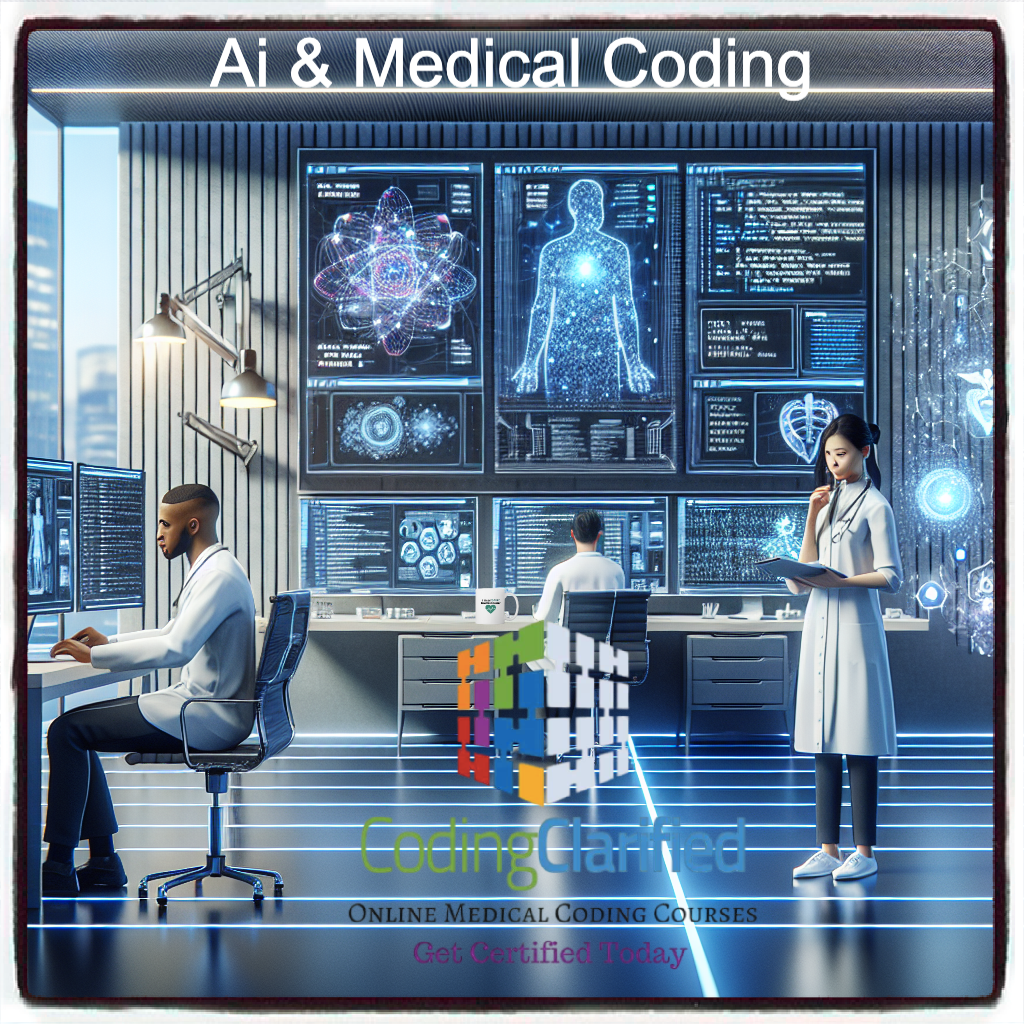How is AI Impacting Medical Coding?
- Automation of Repetitive Tasks: AI-powered tools can automate repetitive coding tasks, such as assigning diagnosis and procedure codes based on medical records. This automation helps to streamline the coding process, reduce errors, and improve coding accuracy and efficiency.
- Natural Language Processing (NLP): NLP technology enables AI systems to understand and process human language. In medical coding, NLP algorithms can analyze clinical documentation, extract relevant information, and generate appropriate codes. This capability allows for faster coding and reduces the burden on human coders.
- Coding Assistance: AI systems can provide real-time coding assistance to human coders. These systems can suggest potential codes based on the context of the medical record, coding guidelines, and historical coding patterns. Coders can then review and validate these suggestions, speeding up the coding process while ensuring accuracy.
- Predictive Analytics: AI algorithms can analyze large volumes of healthcare data to identify patterns and trends. In medical coding, predictive analytics can help identify coding anomalies, detect potential coding errors or fraud, and optimize coding practices to ensure compliance with regulations and reimbursement guidelines.
- Quality Improvement: By analyzing coded data and clinical outcomes, AI can help identify opportunities for quality improvement in healthcare delivery. For example, AI-powered analytics can identify coding patterns associated with better patient outcomes or areas where coding practices may need improvement.
- Continual Learning: AI systems can continuously learn and improve over time. By analyzing feedback from human coders, auditing processes, and evolving coding guidelines, AI algorithms can adapt and refine their coding suggestions to better meet the needs of users and ensure coding accuracy.
- Scalability and Cost Efficiency: AI-powered coding solutions can scale to handle large volumes of medical records efficiently, making them well-suited for healthcare organizations with high coding workloads. Additionally, AI-driven automation can help reduce operational costs associated with manual coding processes.
While AI holds great promise for improving medical coding processes, it’s essential to ensure that these systems are developed and deployed responsibly, with appropriate safeguards in place to protect patient privacy, data security, and coding accuracy. Additionally, human oversight remains crucial to validate AI-generated codes and ensure compliance with coding guidelines and regulatory requirements.
What are the Limitations of AI in Medical Coding?
Let’s discuss the concerns and realities surrounding AI and its impact on medical coding careers.
- Augmentation, Not Replacement: AI is more likely to augment the work of medical coders rather than replace them entirely. AI systems can assist coders by automating repetitive tasks, suggesting codes, and improving coding accuracy and efficiency. However, human expertise is still essential for tasks that require complex judgment, interpretation, and context understanding.
- Increased Efficiency and Accuracy: AI can help medical coders work more efficiently and accurately by automating manual processes, reducing errors, and providing real-time coding assistance. This can ultimately enhance productivity and job satisfaction for coders.
- Focus on Higher-Value Tasks: As AI handles routine coding tasks, medical coders can focus on higher-value activities, such as reviewing complex cases, resolving coding discrepancies, and conducting coding audits. This shift can lead to a more fulfilling and intellectually stimulating role for coders.
- Adaptation and Upskilling: To remain competitive in the workforce, medical coders may need to adapt to the use of AI technologies and acquire new skills. This could involve learning how to use AI-powered coding tools, understanding AI algorithms and their limitations, and staying updated on coding guidelines and regulations.
- Job Creation in AI-related Roles: The rise of AI in healthcare is creating new job opportunities in AI-related roles, such as data scientists, AI engineers, and healthcare IT specialists. Medical coders with a strong understanding of coding principles and healthcare domain knowledge may find opportunities to transition into these emerging roles.
- Ethical and Regulatory Considerations: While AI can offer many benefits in medical coding, there are ethical and regulatory considerations that must be addressed. Coders must ensure that AI systems adhere to coding guidelines, maintain patient privacy and data security, and comply with regulatory requirements.
Will Medical Coding be Replaced by AI?
While AI is transforming the healthcare industry, medical coders should not fear that it will entirely replace their jobs. Instead, coders can embrace AI as a tool to enhance their work, increase efficiency, and focus on higher-value tasks. By adapting to the use of AI technologies and continually upskilling, medical coders can remain valuable contributors to the healthcare system.
The Future of AI in Medical Coding
In conclusion, AI is transforming the medical coding industry by automating repetitive tasks, reducing errors, and increasing efficiency. While AI technology continues to evolve, human expertise remains crucial in overseeing and validating AI-generated codes. Medical coders who adapt to these technological advancements can enhance their productivity and job satisfaction. Embracing AI in medical coding not only streamlines the coding process but also opens up new opportunities for coders to engage in more intellectually stimulating and high-value tasks. As the integration of AI in healthcare continues to grow, medical coders can look forward to a future where AI serves as a powerful tool to complement their skills and improve overall healthcare delivery.

